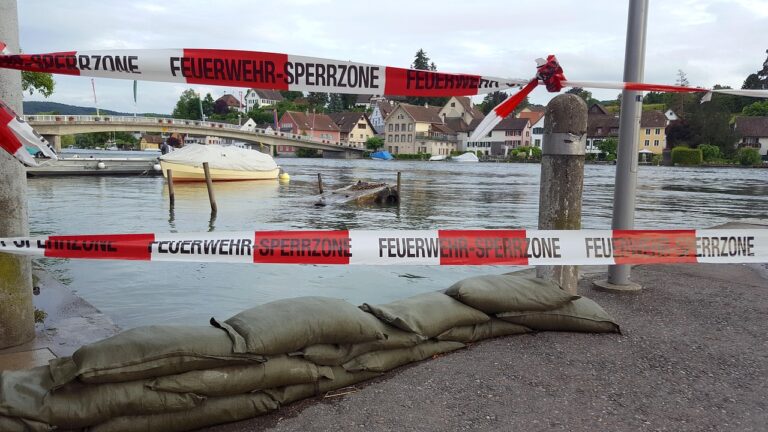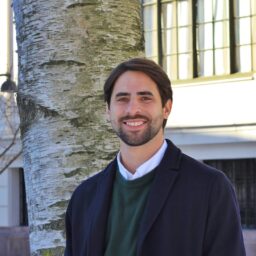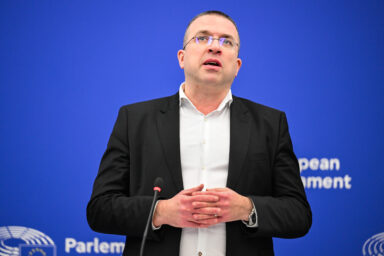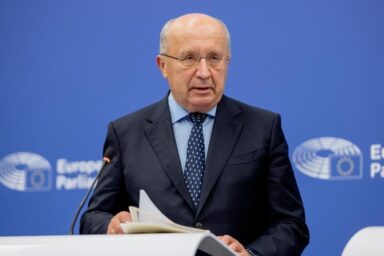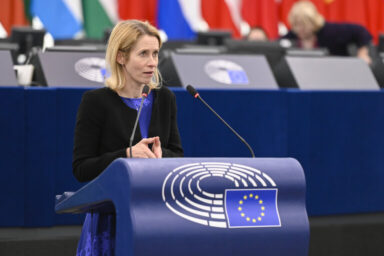EU justice and home affairs ministers began the first of a two-day informal meeting in Copenhagen on Tuesday 22 July to discuss crisis preparedness, irregular migration, and the fight against organised crime. The European simplification agenda and an emphasis on innovation also featured high up on the agenda.
The Danish Presidency of the Council of Europe outlined that the EU is facing increasingly complex security challenges, underlining the need for common solutions, modernisation, greater competitiveness, and increased resilience.
A landscape of risk
EU Commissioner for Equality, Preparedness and Crisis Management Hadja Lahbib gave a brief interview describing how preparedness was one of the topics at the very forefront. She highlighted several reasons why the focus was urgent.
“Here we have flood risks, but last week I was in Greece, where the major threat is wildfires (…) There, thousands of hectares have burned. We are confronted with man-made and natural disasters. We need to address the ‘landscape of risk’ that we face today.”
As Europeans… we have demonstrated how much we can do when we pool our resources and counter man-made and natural hazards jointly. – Torsten Schack Pedersen, Denmark’s Minister for Resilience and Preparedness
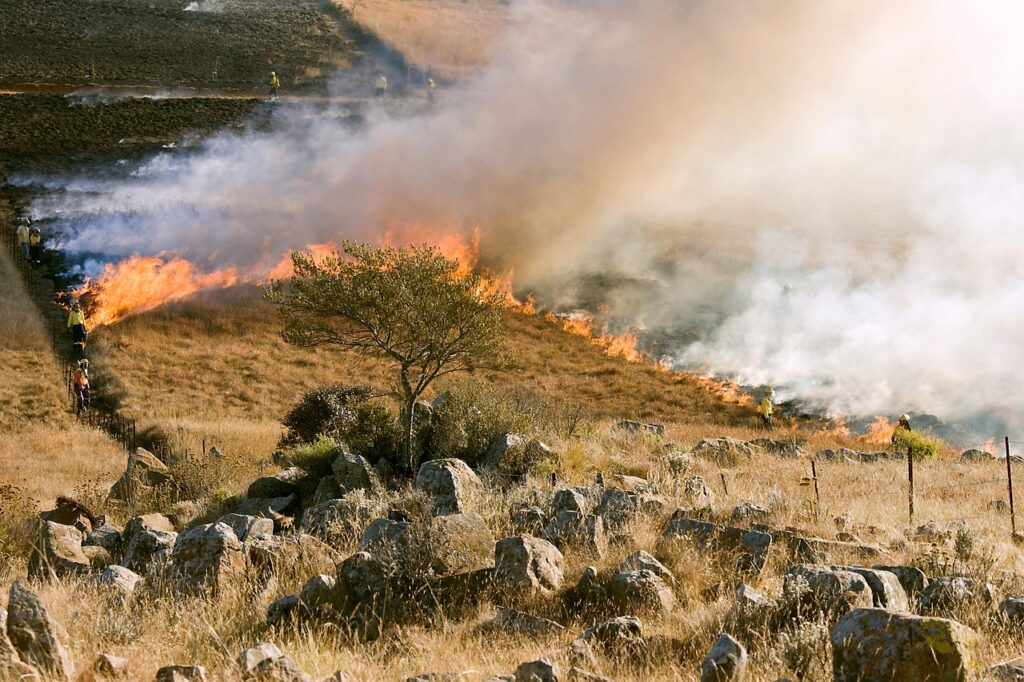
Torsten Schack Pedersen, Denmark’s Minister for Resilience and Preparedness took a similar tack at a press conference after the first meeting.
“There is no doubt that we need to be more resilient in the EU (…) and in today’s meeting we were discussing these pressing issues and how we can do more together (…) As Europeans, we have recently dealt with numerous crises including a pandemic and the consequences of war in Ukraine. We have demonstrated how much we can do when we pool our resources and counter man-made and natural hazards jointly.”
You might be interested
Finally, the Minister for Resilience and Preparedness led a political discussion among the member states on the EU’s new Preparedness Union Strategy, with particular emphasis on strengthening crisis management and resilience. The aim is to set a political direction for continued work on the strategy across the EU.
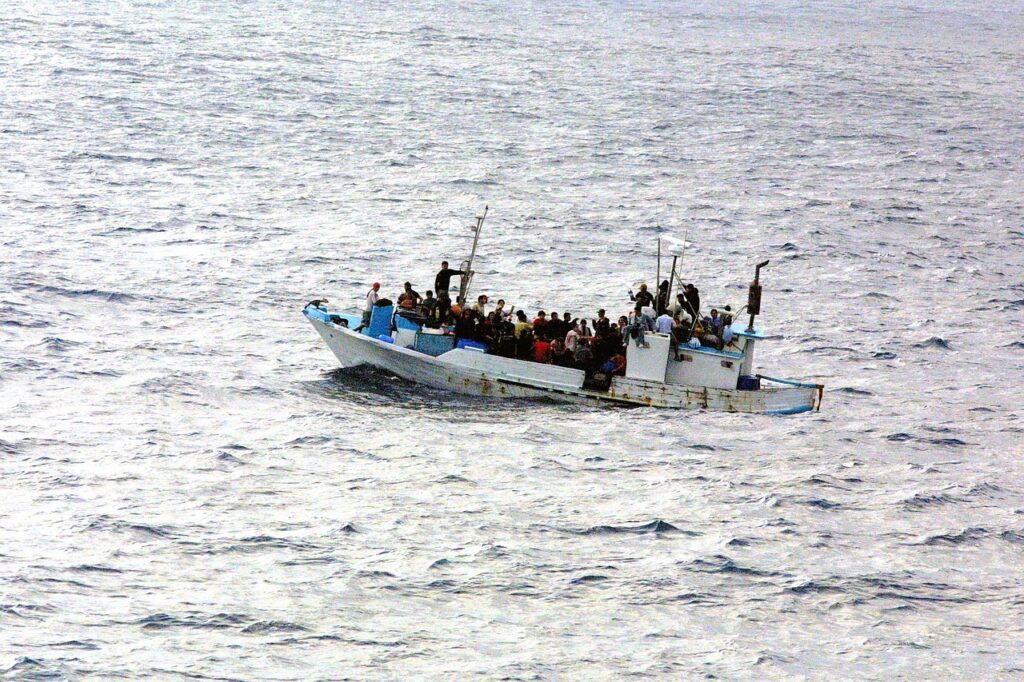
Paramount
The first day of the informal meeting was devoted to Home Affairs, and perhaps the most closely-watched discussion was on irregular migration. Combatting irregular migration is hugely important to the bloc’s security and cohesion and reforming the system is paramount. The Danish Presidency made clear it would press for more effective return procedures for foreigners who do not have a legal right to remain in the EU and stressed the need for a common European approach, describing the current asylum system as inhumane and in need of comprehensive reform.
The MFF sets aside €12 billion for migration management, €15.4 billion for border protection, and an additional €12 billion for Frontex… which reflects the Commission’s prioritisation of these areas. – Magnus Brunner, Commissioner for Internal Affairs and Migration
The Danish Presidency on Tuesday emphasised that individual member states needed additional tools to carry out returns. In parallel, it pledged to prioritise the fight against organised crime, underlining the importance of international cooperation and knowledge-sharing among member states. A press conference held on Tuesday afternoon made clear that a broader EU consensus is emerging on reforms.
Ministers and EU Commissioner outline developments
The first to speak was Denmark’s Minister for Immigration and Integration, Kaare Dybvad Bek. He summarised the discussions so far, highlighting the need to break the current asylum model – which he described as dysfunctional. Mr Bek said the current system gave human smugglers and foreign states an influence over migration flows into Europe – something that most now agree must change quickly. According to the minister, the existing broken system results in only around half of asylum seekers receiving protection.
With EU-wide return compliance rates remaining low, observers have long argued that reform is overdue. One journalist present noted, in so many words, that the 10 years since the original migrant crisis should have been enough time for the EU to get its act together. The Danish Presidency reiterated that the EU needs more effective return mechanisms – including proposals for external return hubs beyond EU borders – and stronger tools for individual member states to carry out deportations effectively. Notably, whatever differences existed in the past, a broad consensus now appears to be forming around the need for more workable solutions.
The next to speak was Denmark’s Minister for Justice, Peter Hummelgaard, who described cross-border organised crime as “a cancer” that had spread globally. He underscored that cracking down on such crime is a top priority, especially when it involves online services facilitating serious offences such as child abuse.
The final speaker was Commissioner for Internal Affairs and Migration, Magnus Brunner.

A few puzzle pieces
In line with the European Commission’s position, the Commissioner welcomed the Danish Presidency’s focus on these issues, calling it a positive signal for the coming months. He repeated the need for action – “Since crime is organised, we need to be organised, too.” On irregular migration, he reaffirmed the Commission’s commitment to systemic reform, pointing to a robust pact already in place.
“Already in the first months of the new Commission, we proposed and presented several missing elements – including the returns regulation, a review of the safe third country concept, and an updated list of safe countries of origin. These are all crucial components in building a stronger foundation for a better migration system.”
Mr Brunner added that Europe’s citizens must feel a sense of control, and discussed the external dimension of migration management, including the potential of return hubs. He emphasised that any solutions must comply with EU law and be workable for all member states. He concluded by stressing the financial commitment the Commission has made to the issue in the new Multiannual Financial Framework (MFF). “It sets aside €12 billion for migration management, €15.4 billion for border protection, and an additional €12 billion for Frontex – a tripling of the previous budget, ” the commissioner explained.
Migration has long been one of the EU’s most difficult and divisive issues, repeatedly testing solidarity between member states. For years, efforts to reform the system have been hindered by political disagreement, legal complexity, and shifting public opinion. That the Danish Presidency, the Commission, and national ministers now appear aligned marks a notable shift. The Commissioner not only applauded the Danish Presidency but also expressed enthusiasm about working together over the next six months.
